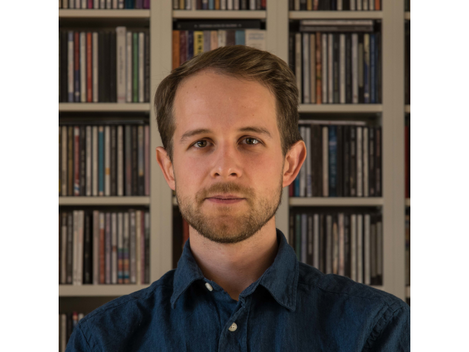 Photo © Mariano Gonzalez
Photo © Mariano Gonzalez
Peter Lell studied Musicology and Philosophy at the Kiel University, the Friedrich Schiller University Jena and the University of Music Franz Liszt Weimar. He completed his master thesis at the University of Leeds (UK) exploring concepts of music education at World Music Festivals. Since 2019, he has worked as a researcher and lecturer at the UNESCO Chair on Transcultural Music Studies in Weimar. He has published various articles and chapters about his work as well as edited a book on the musical landscape of the German state Thuringia (Musikland Thüringen). Currently, his main research is connected to the traditional music of Afghanistan and particularly, the short-necked lute rubab. Further research interests include the contemporary music of the 21st century, transcultural music aesthetics, the epistemology of sound archives and electronic dance music.
+43 1 71155 - 2046
Ways and Strategies of the Transmission of Knowledge – The Case of Traditional Music of the Afghan Rubab
My dissertation project focuses on the traditional music of Afghanistan with a particular focus on the instrument Afghan rubab. I am interested in the contemporary practices and knowledges that are connected with the instrument and its musical tradition. Despite the highly conflictual recent history of Afghanistan and the displacement of a large part of the musicians from the country, the rich musical tradition is still alive. My aim is to scrutinize the processes behind the transmission of knowledges related to the musical tradition and the instrument, its playing techniques, the repertoire used, the practices utilized as well as the actors involved. The materiality of the instrument will serve as an entry point to explore the different types of knowledges as well as practices that are connected to the rubab. My research will focus on a) local sites of interaction such as master-student teachings, musical workshops, festivals as well as informal group gatherings, and b) on the digital sphere covering websites, blogs, video platforms and especially, the vast field of social media. Utilising methods from ethnography as well as “Digital Ethnography”, extensive data will be collected in order to gain insights into the de-localised, fluid practices of knowledge transmission and circulation connected to the Afghan rubab. This way, the research may provide understandings of the contemporary state of the traditional music of Afghanistan as it is practiced in the diverse fields today and furthermore, give insights into the growing musical practices happening in the ephemeral digital fields.